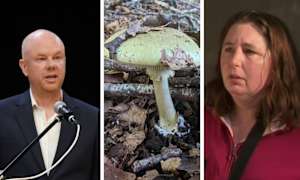THE pay is ridiculously low. The hours of work and research incredibly onerous. You get unmercifully criticised, at times, on social media and in the press. And often find yourself in a no-win situation when making tough decisions.
But, according to the four councillors who turned out at a Councillor Information Session at Cowes last Wednesday night, ahead of the next local government elections in October 2024, they wouldn’t have it any other way.
At the end of the hour-long briefing, Crs Le Serve, Bauer, Ellis and Rooks all agreed, being a councillor is a fulfilling endeavour.
“Apart from everything else, it’s a very enjoyable process, you learn a lot and it’s something very worthwhile to do,” said the Mayor Cr Clare Le Serve.
Cr David Rooks said that while he thinks it’s important to protect yourself from the keyboard warriors on social media and by not reading ‘Letters to the Editor’ in local newspapers, being a councillor is an opportunity to make a difference.
“I love the briefings in particular, because I like to know what’s going on in my community and helping to make decisions at a high level that affect my community.”
Cr Ron Bauer said he likes to try to help his community and he finds being a councillor very rewarding.
Cr Geoff Ellis said he feels like he has done some good things as a councillor, while thanking his partner for backing him up.
But the night was all about encouraging people to consider standing for council at the next election and new CEO Greg Box said the council was particularly keen to encourage diversity among candidates, including a variety of ages, genders, cultural backgrounds and experience.
“The broader the diversity, and this isn’t having a shot at the present council, the better the decision making.”
Staff member, Sharyn Tilley, the shire’s Manager Governance and Property provided details about the role of a councillor and the state and local rules under which they operate.
A question and answer session followed including the following:
* Can you get leave? Yes.
* Do you have to attend every meeting and briefing? No, but the introduction of video conferencing had made it easier for councillors and staff to attend remotely.
* How do you handle the negative and even aggressive responses councillors receive sometimes on social media? “It’s not the best place to have a conversation,” said the mayor Cr Le Serve. “I try to understand why people are getting upset but prefer a face-to-face conversation.”
* How much did you spend on your campaign and did you have a campaign manager? Anywhere between $3000 and $10,000. One of the most important costs is writing to absentee property owners who are also entitled to a vote.
* How do councillors ensure transparency? “It’s a priority of council to keep the community informed. If you ask us a question we’re happy to find out the details,” said Cr Le Serve.
* Once you’ve gone backwards and forwards doing consultation with the community, do you vote for what the majority of people want or do you make up your own mind? “Community feedback is only one of the things to consider when making a decision,” said Cr David Rooks. “You are get expert advice and stakeholder advice from organisations like Melbourne Water which affect your decision making.”
However, as good as the information was, there was less than a handful of prospective council candidates, when you take out the number of councillors and shire staff who were present, and other members of the community just taking an interest.
Other Councillor Information Sessions are as follows:
· Coronet Bay Hall & Fred Gration Reserve, Monday, March 18 6pm - 7pm
· Wonthaggi Town Hall Tuesday, March 26 6pm - 7pm










